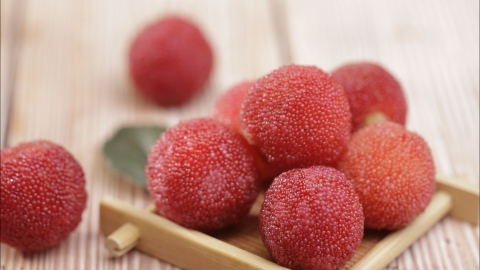Can I eat Chinese bayberry (Myrica rubra) after taking blood pressure medication?
Whether or not someone taking antihypertensive medication can eat waxberries depends on the type of medication and individual health conditions. If there is no conflict between the drug's ingredients and waxberries, and the gastrointestinal function is normal, a moderate amount of waxberries may be consumed. However, if there are contraindications between the medication and waxberries or if the gastrointestinal system is sensitive, it is not advisable to eat them. If uncertain, it is recommended to consult a healthcare professional beforehand. Detailed explanations are as follows:

If the antihypertensive medication being taken includes drugs such as nifedipine tablets or captopril tablets, and dietary restrictions are not mentioned in the drug instructions, and your gastrointestinal digestion is functioning normally, a small amount of waxberries can be consumed 1–2 hours after taking the medication. Waxberries are rich in vitamins and minerals; moderate consumption can provide nutritional benefits and will not interact with antihypertensive drugs or affect blood pressure control.
If the antihypertensive medication is a potassium-sparing diuretic such as spironolactone tablets, waxberries contain potassium and excessive consumption may lead to elevated blood potassium levels, increasing the risk of hyperkalemia. Additionally, if symptoms such as dizziness or nausea occur after taking antihypertensive medication, or if gastrointestinal function is inherently weak, the organic acids in waxberries may irritate the stomach and intestines, worsening these symptoms, and thus should be avoided.
When consuming waxberries after taking antihypertensive medication, first confirm whether the drug's instructions specify any dietary restrictions, and avoid eating waxberries immediately after taking the medication. Control the quantity consumed, and consult a doctor promptly if any discomfort occurs. Regular blood pressure monitoring, a balanced diet, and a regular lifestyle are essential for maintaining stable blood pressure.




